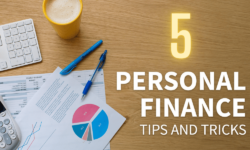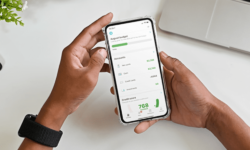The Ultimate Beginner’s Guide to Budgeting and Saving
- Adust your budget in areas where you overspend
After analyzing your expenses, you must have noticed that you can do without some, so adjust them. You can choose to eliminate them or reduce the amount.
For instance, if you spend more than $400 on entertainment, you can reduce it to $200 and allocate it to your savings account. This way, you will reach your goals sooner.
- Decide how much to allocate to savings
Since you are just starting to budget, the likelihood of having a lot of money allocated to savings is slim. Don’t worry; it’s better to start small than not to start at all. It would be best to start with a small amount as it will get you in the habit of saving and increasing a little by reducing other categories.
Alternatively, if you have a flexible schedule, you can try looking for another job to increase your income, giving you extra money to allocate to savings to secure your future.
The best way to succeed in saving is before you do anything with the money after paying fixed expenses, to pay yourself first because if you want to save after having done all expenses, you will not have any cash left.
- Automate your savings
It’s best to automate your savings, the minute your salary hits your account just like your fixed expenses such as mortgage and car loan, automate your savings. This will help you get into the habit of saving.
Alternatively, you can get an accountability buddy who will call you out and make you accountable for making choices that will blow your budget.
- Emergency fund kitty
Chances are, you do not have an emergency fund since you’ve been living life on the fast lane. So to start, you must include an emergency fund in your budget. Every person should have an emergency fund because it helps in times of crisis and stops you from relying on credit cards with very high-interest rates.
We all know emergencies can happen at anytime, and having money to fall back on removes the stress. This means that to build an emergency fund that can sustain you for six months, you will have to give several luxuries for the next few months, but it will be all worth it. You can build your starter emergency fund of $1000 and increase it as time goes by.
- Pay off debts
As you fund your emergency fund, you should also start paying off your debts. This would be gruesome if you had been used to living on loans, and you would feel like you are being restricted, but it is all for your own good.
You can reduce your spending on several areas, including eating out, clothing, subscriptions, electronics, and appliances. You can start with high-interest debts.
- Get your family involved
If your family is omitted when making your spending plan, then chances of succeeding are minimal because they will not understand why you are cutting down on things they were used to. So, sit down together and have a healthy discussion about budgeting and make a spending plan that you can all stick to.
Help them learn between wants and need as this will help shift the way they think about money. Needs are the things you must have to live, and wants are things we desire but do not need.
Therefore, if you need to save more money, you will have to expend less money on wants. It will be hard to get used to at first, but practice self-control ad try to stay away from wants triggers, and you’ll be all good.
However, don’t deny yourself altogether. It’s good to splurge once in a while, but make a list of your wants before doing that. Then take a few days to ponder which want comes first because you can’t satisfy all of them.
- Keep tracking your expenses and adjusting your spending plan as needed
Budgeting is not for the faint-hearted, so keep monitoring your spending and adjusting it because it will take time to have a perfect spending plan. And most of all, don’t give up because budgeting can give you financial freedom.
How Will Budgeting Help You?
- It gives you control over your finances
- It helps you uncover your spending patterns and cut off unhealthy ones
- It enables you to get started on your emergency fund
- It offers you financial freedom as it allows you to save and invest for your future
- Budgeting offers transparency in marriages, thus reducing arguments related to money.
- It allows you to live a worry-free life because you know your future is secured. In case of an emergency, you have extra money tucked away.
Final thoughts
Every person desires a financially secure future, but very few people act on it, start budgeting and saving today, and you will be one step closer.
To be successful in budgeting, you will need to have the right mindset, as discussed in the article. And starting with a small amount is better than not starting at all.
So, follow these tips and create a spending plan around your goals and stick to it, and with time, you will be happy that you started as you see your savings begin to grow. However, don’t let your money sit in the bank; start investing.



